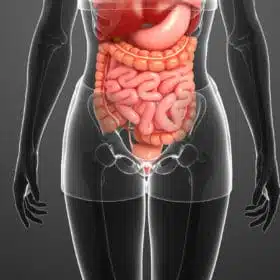Especially in today's information society, which provides us with all kinds of more or less correct data, the interpretation of which is often nebulous and lacks any sound basis, it is not easy to keep track of things and draw the right conclusions. In the fitness community, this applies to no other topic as aptly as protein supply. Scholars have been arguing persistently for decades, going from one extreme to the other when it comes to daily protein consumption, so that the average athlete no longer knows what to believe. To bring clarity to this matter once and for all, in this article we will clear up the practice of poking around in the fog and provide you with a guide to help you easily determine how much protein you really need.
Why do I need protein?
To become aware of the importance of protein for the human body, you should know that this macronutrient group, like fats, is essential for the human organism, without which the maintenance of physiological functioning is not possible. Every cell in our body consists to a large extent of protein structures. In addition, the proteins, which consist of up to 20 different amino acids, perform and support numerous tasks ranging from hormone production to the formation of new tissue and DNA replication. Other tasks of the macromolecules include the formation of antibodies and enzymes as well as the development of healthy skin, strong nails and durable hair. To ensure that your body is always supplied with a sufficient amount of essential amino acids, you must therefore ensure that you consume an appropriate amount of protein in your diet.
Determine your protein requirements
However, the main problem with protein consumption lies in the fact that the recommendations in this regard vary considerably. In particular, the information provided by various nutrition societies often falls far short of the mark, as the biological value that a protein must have in order to be optimally processed by the body is often neglected in the published guidelines. However, as we humans use a wide variety of protein sources, not all of which can be biologically processed in the same way, the daily intake should be higher than you may have assumed. In practice, the actual requirement depends on numerous factors such as age, weight, activity level and a person's individual metabolic characteristics. As the latter in particular are almost impossible to grasp, it is not possible to determine the daily protein requirement down to the gram. Instead, nutritional science tends to define ranges that make it easier for you to determine your requirements. As a rule of thumb, a healthy adult with a mostly sedentary lifestyle should consume between 1 and 1.4 grams of protein per kilogram of body weight per day. In the case of ambitious amateur athletes, the requirement increases to 1.6 to 2 grams. Although many relevant magazines repeatedly state that 2 or more grams of protein per kilogram of body weight are required, this is in no way accurate for the average person. Scientific studies even suggest that even top athletes do not need to consume such a high amount of protein to cover their requirements.
What you should continue to look out for
As already mentioned, in the context of protein intake, it depends on the biological usability of the individual sources from which the protein ultimately comes. In addition to whole egg, white meat is by far one of the most easily absorbed sources of protein, not least due to the fact that it is almost fat-free and can be digested much more easily than fatty meat. Nevertheless, pork and beef are also excellent sources of protein, as is oily sea fish, which also contains essential omega-3 fatty acids. Other valuable sources of protein include low-fat dairy products, beans and nuts. No matter how high your requirements are, you should make sure you get your protein from as many different sources as possible to guarantee the intake of a broad spectrum of amino acids that will benefit your body. Another important point that is often criminally neglected in the context of protein intake is sufficient fluid intake, which supports kidney function, as the metabolization of protein produces ammonia, among other things, which can damage the kidneys. You should also drink at least 2-3 liters of fluid per day to avoid the formation of highly concentrated urine.










